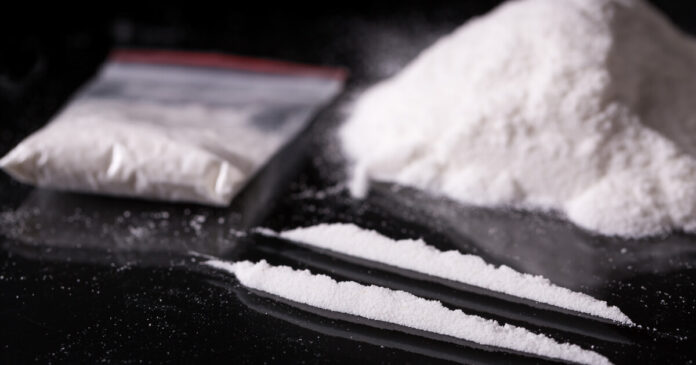Delhi’s Largest Drug Bust: ₹2,000 Crore Worth of Cocaine Seized, Four Arrested
In a landmark operation, the Delhi police have seized over 560 kg of cocaine, valued at nearly ₹2,000 crore, marking the largest drug bust in the capital’s history. The substantial haul was discovered in the Mehrauli area of South Delhi, leading to the arrest of four individuals. The authorities suspect that this massive cache is linked to an international drug syndicate operated by Afghan nationals based in New Delhi. The intention was to distribute the narcotics within Delhi and the surrounding National Capital Region (NCR).
The Special Cell of the Delhi police, which spearheaded this operation, had been meticulously tracking the suspects for over two months following a crucial tip-off. This extensive surveillance culminated in the successful interception just ahead of the festive season, a period often marked by heightened illegal activities.
This seizure comes on the heels of another significant operation involving Afghan nationals. Just days before this major bust, two Afghan nationals were apprehended in Tilak Nagar for their involvement in a drug syndicate. During this raid, the police recovered 400 grams of heroin and 160 grams of cocaine from Hashimi Mohammad Waris and Abdul Nayib. These arrests provided critical insights into the operations of international drug networks within the capital.
Hashimi Mohammad Waris, one of the individuals arrested in the Tilak Nagar raid, had been residing in India under refugee status since January 2020. Originally from Afghanistan, Waris’ family remains in his home country. In India, he initially worked as a helper at a chemist shop in Vikaspuri. His entry into the drug trade was orchestrated by a friend who contacted him, offering monetary compensation for collecting drug consignments across Delhi and the NCR. Waris’ role was primarily that of a courier, earning $100 per delivery.
Abdul Nayib, also an Afghan national, arrived in India in January 2020 with his father and holds registered refugee status. Like Waris, Nayib’s family is still in Afghanistan, with only his father accompanying him to India. Nayib’s involvement in the drug trade began after meeting Waris at the chemist shop where both worked. Enticed by the promise of a lavish lifestyle, Nayib was drawn into the illicit business.
The arrest of Waris and Nayib underscores a troubling trend of foreign nationals exploiting refugee status to engage in criminal activities within India. The economic desperation and lack of legitimate opportunities often push individuals like Waris and Nayib towards such illegal ventures. Their arrests provided valuable intelligence, aiding the police in dismantling a larger network.
The modus operandi of the syndicate, as revealed by the investigations, indicates a sophisticated network with operational nodes in various parts of the capital. The syndicate utilized a combination of high-level planning and low-level execution, with couriers like Waris and Nayib handling the ground-level distribution. The syndicate’s hierarchical structure and the sheer volume of drugs involved suggest significant financial backing and international connections.
The Special Cell’s operation against this drug network reflects the growing challenge of international narcotics trade infiltrating urban centers. The successful interception of such a large quantity of cocaine is a testament to the efficacy of intelligence-led policing and the importance of inter-agency cooperation. However, it also highlights the persistent and evolving nature of drug trafficking networks that continue to exploit vulnerable populations and global mobility.
The implications of this bust are far-reaching. Beyond the immediate impact of removing a significant quantity of drugs from the streets, it disrupts the supply chain, potentially leading to higher drug prices and reduced availability in the market. This can have a deterrent effect, at least temporarily, on drug-related activities in the region.
Moreover, the arrests send a strong message to international drug cartels about the vigilance and capability of Indian law enforcement agencies. It underscores the need for continuous monitoring and international collaboration to tackle the menace of drug trafficking effectively.
The Delhi police, through this and other recent operations, have demonstrated a proactive approach in addressing the drug menace. However, the need for sustained efforts cannot be overstated. Strengthening border security, enhancing intelligence-sharing mechanisms, and fostering international cooperation are crucial steps in this direction.
In conclusion, the historic cocaine seizure in Delhi not only marks a significant victory for law enforcement but also sheds light on the intricate operations of international drug syndicates. The arrests and subsequent investigations will likely yield more insights into the functioning of these networks, paving the way for more targeted and effective counter-narcotic strategies in the future.

